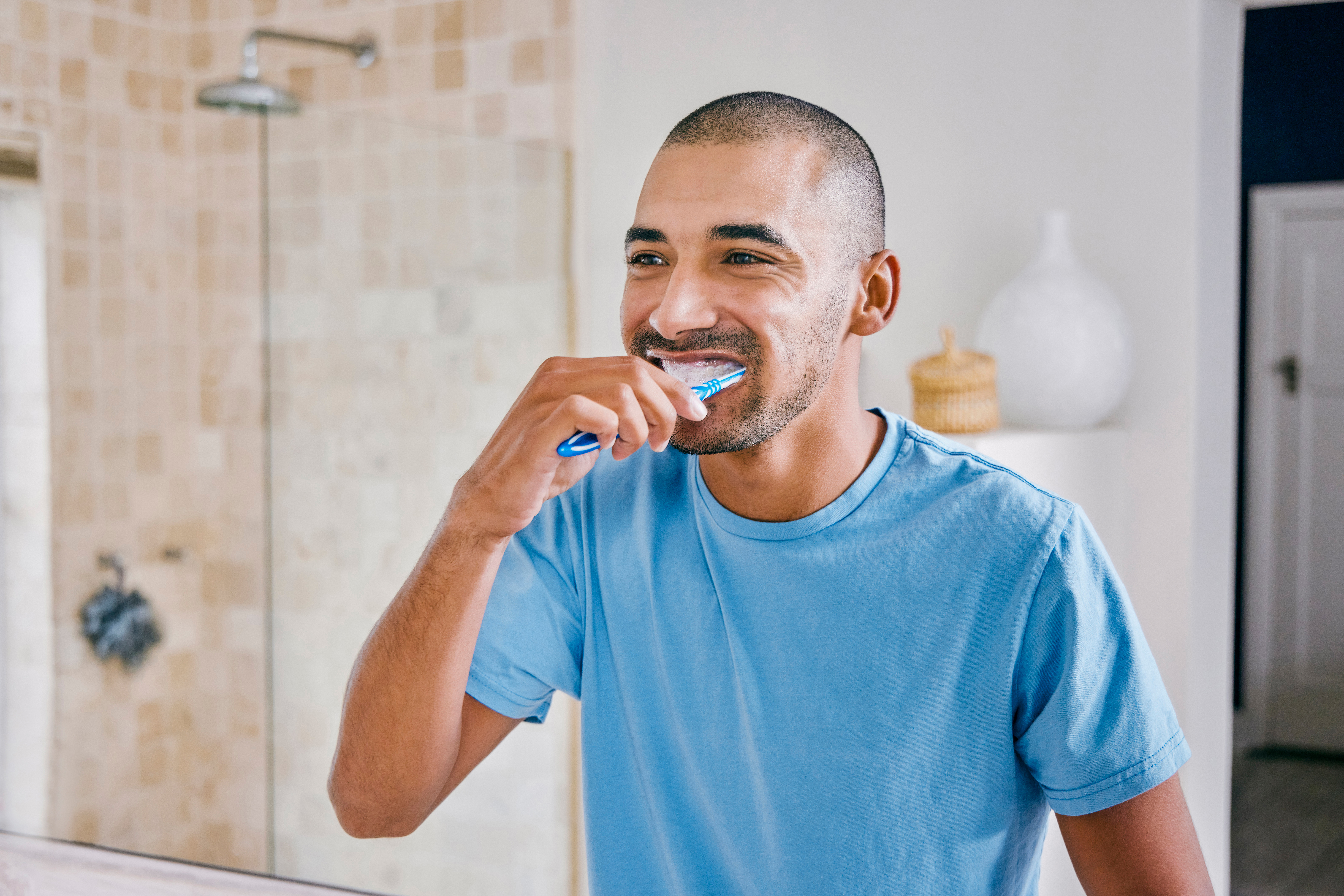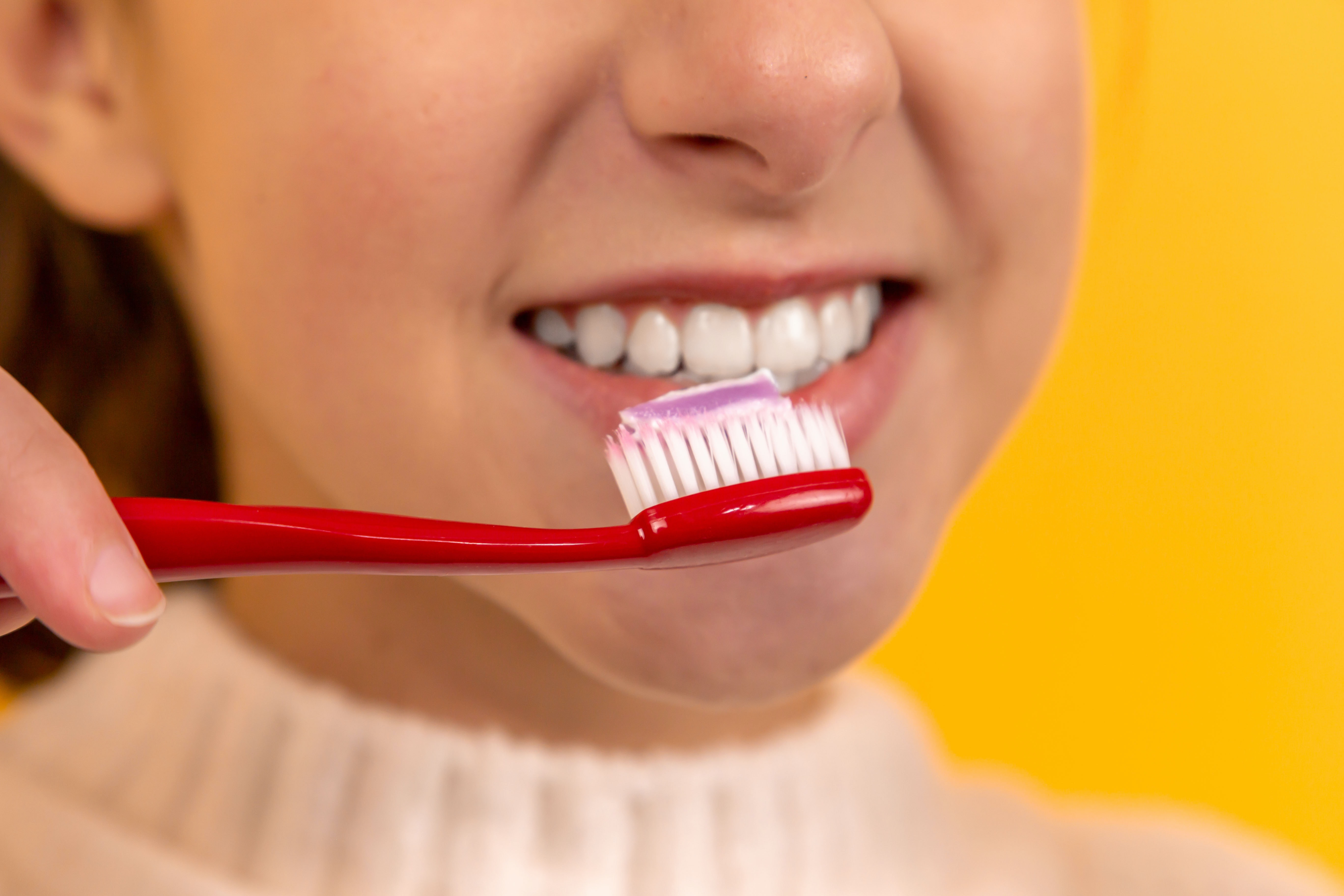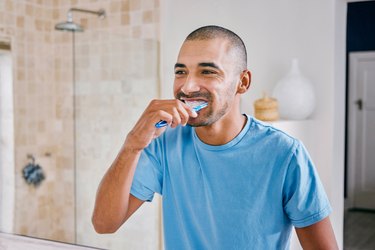Brushing your teeth while standing on one leg can provide numerous benefits for healthy aging, including improved balance, brain function, and bone strength. Not brushing one’s teeth can lead to periodontal disease, which is associated with a higher risk of kidney disease, dementia, and certain types of cancers.
It is recommended by the American Dental Association to brush your teeth twice a day for two minutes using fluoride toothpaste and to floss daily. By incorporating this simple practice into your oral hygiene routine, you can promote healthy aging and maintain your overall well-being.

Credit: www.livestrong.com
The Importance Of Brushing Your Teeth
Brushing your teeth while standing on one leg can contribute to healthy aging by improving balance, cognitive function, and bone strength. Incorporating this simple habit into your daily routine can have long-term benefits for your overall well-being.
Brushing your teeth is not only essential for maintaining good oral hygiene but also plays a crucial role in healthy aging. The simple act of brushing your teeth can have a significant impact on your overall well-being. To fully understand the importance of this daily habit, let’s explore the negative consequences of not brushing and the long-term health problems it can lead to.
Negative Consequences Of Not Brushing
When it comes to neglecting your oral hygiene, the consequences can go beyond bad breath and yellowed teeth. Not brushing your teeth regularly can result in a condition called periodontal disease, which affects the gums and the bones supporting the teeth. This can lead to various health problems that extend well beyond your mouth.
Long-term Health Problems
Research has shown that periodontal disease is associated with an increased risk of kidney disease, dementia, and certain types of cancers. The bacteria that thrive in infected gums can travel through the bloodstream to other parts of the body, causing systemic inflammation and contributing to the development of these serious conditions. By neglecting your dental hygiene, you could be putting your long-term health at risk.
How Often Should You Brush Your Teeth?
To ensure proper oral care and reduce the risk of developing dental problems, it is recommended to brush your teeth at least twice a day, preferably after meals. This routine helps remove plaque and prevents its buildup, which can lead to cavities, gum disease, and other oral health issues.
During each brushing session, be sure to brush all tooth surfaces, including the front, back, and chewing surfaces. Use a toothbrush with soft bristles and a toothpaste that contains fluoride to effectively clean your teeth and protect them from decay.
Additionally, don’t forget to replace your toothbrush every three to four months or sooner if the bristles become frayed. Regularly changing your toothbrush ensures that you maintain its effectiveness in cleaning your teeth and gums.
In conclusion, brushing your teeth is a simple yet powerful practice that can contribute to healthy aging. By incorporating this daily habit into your routine, you can potentially reduce the risk of developing not only dental problems but also long-term health issues. Take care of your oral health today to age well tomorrow.

Credit: www.pinterest.com
Developing The Habit Of Brushing
Developing the habit of brushing your teeth while standing on one leg can provide numerous benefits for healthy aging, including better balance, a sharper mind, and stronger bones. Make it a daily practice and age well with this simple trick.
Setting Reminders
Developing the habit of brushing your teeth every day is crucial for healthy aging. One effective way to ensure you never miss a brush is to set reminders on your phone. Set a daily alarm or use a reminder app to alert you at a specific time. This will help you establish a routine and make brushing a priority.
Keeping Track With A Smile Diary
Another useful method to develop the habit of brushing is to keep a smile diary. Dedicate a small notebook or use a digital journal to record each time you brush. Write down the date, time, and duration of your brushing session. This will help you track your progress and hold yourself accountable. Plus, it can be a fun way to look back on your oral health journey.
Creating A Routine
Creating a routine is key to making brushing a habit. Choose a specific time in the morning and evening that works best for you and stick to it. Consistency is key. Make sure you allocate enough time for brushing, ideally, two minutes each time. Consider using a timer or playing your favorite song to make sure you brush for the recommended duration.
The Benefits Of Brushing On One Leg
When it comes to healthy aging, incorporating simple habits into your daily routine can make a big difference. One such habit that you may not have considered is brushing your teeth while standing on one leg. This seemingly small change can actually have a profound impact on your overall well-being. Let’s take a closer look at the benefits of brushing on one leg:
Improved Balance
By shifting your weight to one side and standing on a single leg while brushing your teeth, you engage your core muscles and improve your balance. This simple act helps to strengthen the muscles in your legs and core, reducing the risk of falls and supporting better stability as you age.
Sharper Brain
The connection between physical activity and brain health is well-established. When you brush on one leg, you challenge your brain to focus on maintaining balance while performing a routine task. This dual-tasking exercise helps to enhance cognitive function and improve mental acuity, keeping your brain sharp as you age.
Stronger Bones
As we age, maintaining strong bones becomes increasingly important. Standing on one leg while brushing your teeth adds an additional weight-bearing component to your daily routine. This weight-bearing exercise stimulates bone growth and helps to prevent age-related bone loss, keeping your bones strong and reducing the risk of fractures.

Credit: www.kneibdentistry.com
Frequently Asked Questions On Want To Age Well? Do This While Brushing Your Teeth Every Time For Healthy Aging
What Happens When You Don’t Brush Your Teeth For 50 Years?
Not brushing your teeth for 50 years can lead to serious long-term health issues. It increases the risk of periodontal disease, which is linked to kidney disease, dementia, and certain types of cancers. It can also cause cavities, advanced tooth decay, and other dental problems.
It is important to brush your teeth regularly for good oral health.
When You Brush Your Teeth How Long And How Often Should You Do It For?
Brush your teeth twice a day for two minutes each time, according to the American Dental Association.
How Do I Get Into The Habit Of Brushing My Teeth Everyday?
To get into the habit of brushing your teeth every day, try these strategies: set a reminder on your phone, keep a smile diary, start and end your day with brushing, make it a financial commitment, brush together with someone, consider the risks of cavities, and find a toothpaste that makes brushing enjoyable.
What Happens If You Dont Brush Your Teeth For Ages?
Not brushing your teeth can lead to long-term health problems like periodontal disease, which is associated with higher risks of kidney disease, dementia, and certain types of cancers. It is recommended to brush your teeth at least twice a day to prevent cavities, tooth decay, and periodontal disease.
Conclusion
Incorporating the simple practice of standing on one leg while brushing your teeth can contribute to healthy aging. This small change can lead to benefits such as improved balance, sharper cognitive function, and stronger bones. By prioritizing our oral health, we can positively impact our overall well-being as we age.
So next time you brush, give it a try and see the difference it can make in your journey towards aging well.

